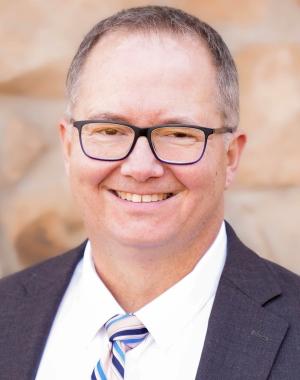 The distress has been palpable. Important voices within the Church decry clericalism as the cause of the current scandal. Others point to the Church’s teaching concerning sexuality not being lived or taught with clarity. Still others describe a lack of authentic conversion, that many of our leaders are not allowing the grace of Christ to bring them to repentance and true holiness. While each of these diagnoses is accurate in particular cases, I’m sure, there is another dimension of this crisis that is not frequently discussed. It concerns us catechists closely. By its nature, this scandal undermines faith in the sacraments. Perhaps the most important thing we catechists teach about the sacraments is that there are objective fruits, real effects, which God accomplishes through our sacramental encounter with him.[1] In the Sacrament of Holy Orders, a principal effect of the sacrament is that “the recipient is configured to Christ by a special grace of the Holy Spirit, so that he may serve as Christ’s instrument…” (cf. CCC 1581-1589). If a priest or bishop serially lives a double life, in stark contradiction to the Christification objectively effected by this sacrament, the fruit intended by Christ is not realized. The Second Vatican Council describes the possibility, should a person not cooperate with grace, of receiving a sacrament “in vain.”[2] What happens when the sacraments are received regularly but without cooperating with their specific graces? It doesn’t take long before the dissonance between what we receive and how we live causes a loss of faith in the sacraments—for ourselves certainly but also for those around us. Some tragically conclude that the sacraments are, in essence, pious superstitions, empty ceremonies that effect nothing. Of course, the focus these days is on the contradicted living of the Sacrament of Holy Orders by some priests and bishops. A related (though different) scandal unfolds in certain sins of the sacramentally married, in the newly confirmed who immediately abandon sacramental practice, and in the baptized who do not grow to be missionary disciples of the One with whom they are intimately joined by baptismal grace. The problem arising out of these scandals is this: many today now have no expectations of the sacraments. For them, the sacraments are merely human rites of passage, rather than transforming encounters with God that conform us more closely to Christ who is our Life. And such a sacramental life, lacking the strong familial and cultural supports of previous generations, is easily abandoned. As catechists, what is our way forward? We must convincingly teach the supernatural effects of the sacraments. For instance, through baptism, we are adopted as God’s own children and the Father of Jesus becomes our Father (CCC 1265). In matrimony, Christ enters the love of a man and woman, giving them the ability (that they did not previously possess) to love each other supernaturally (CCC 1642). Effects such as these, which God accomplishes in us, are vitally important. As extraordinary as these truths are, their teaching must be complemented by the nonverbal witness and verbal testimony of real human beings who can describe from their own experience how to cooperate with transformative sacramental grace. This requires what Fr. James Mallon calls, “a culture of testimony” in our parishes and schools. Unless we introduce our people to authentic witnesses (to include the members of the communion of saints), the true impact of the sacramental encounter will no longer be credible to those we teach. This also must be said: sacramental fruitfulness frequently does not neatly align with our feelings and emotions. Many today may feel close to God and presume that this is a sacrament’s intended fruit—but a sacrament bears fruit when we are conformed to Christ. One final point. The way of fruitfulness in Christ is described in John 12:24: “Unless a grain of wheat falls to the ground and dies, it remains just a grain of wheat; but if it dies it produces much fruit.” This is how grace becomes fruitful, then, in each of the sacraments: first death, then new life. Cooperating with sacramental grace requires a dying to self and an intentional movement into the self-sacrificing love of God. Every sacrament, in its own way, strengthens us to will the good of others for their sake (and not our own). The sacraments are ordered towards love, and the more responsive we become to their graces the more God will be seen and glorified in how we live. Recovering the true power of Christ in the sacraments is the perfect—and only—antidote to our troubling times. It is also the most formative conviction we can offer to those we teach. Dr. James Pauley is Professor of Theology and Catechetics at Franciscan University of Steubenville and author of Liturgical Catechesis in the 21st Century: A School of Discipleship (Liturgy Training Publications, 2017).
The distress has been palpable. Important voices within the Church decry clericalism as the cause of the current scandal. Others point to the Church’s teaching concerning sexuality not being lived or taught with clarity. Still others describe a lack of authentic conversion, that many of our leaders are not allowing the grace of Christ to bring them to repentance and true holiness. While each of these diagnoses is accurate in particular cases, I’m sure, there is another dimension of this crisis that is not frequently discussed. It concerns us catechists closely. By its nature, this scandal undermines faith in the sacraments. Perhaps the most important thing we catechists teach about the sacraments is that there are objective fruits, real effects, which God accomplishes through our sacramental encounter with him.[1] In the Sacrament of Holy Orders, a principal effect of the sacrament is that “the recipient is configured to Christ by a special grace of the Holy Spirit, so that he may serve as Christ’s instrument…” (cf. CCC 1581-1589). If a priest or bishop serially lives a double life, in stark contradiction to the Christification objectively effected by this sacrament, the fruit intended by Christ is not realized. The Second Vatican Council describes the possibility, should a person not cooperate with grace, of receiving a sacrament “in vain.”[2] What happens when the sacraments are received regularly but without cooperating with their specific graces? It doesn’t take long before the dissonance between what we receive and how we live causes a loss of faith in the sacraments—for ourselves certainly but also for those around us. Some tragically conclude that the sacraments are, in essence, pious superstitions, empty ceremonies that effect nothing. Of course, the focus these days is on the contradicted living of the Sacrament of Holy Orders by some priests and bishops. A related (though different) scandal unfolds in certain sins of the sacramentally married, in the newly confirmed who immediately abandon sacramental practice, and in the baptized who do not grow to be missionary disciples of the One with whom they are intimately joined by baptismal grace. The problem arising out of these scandals is this: many today now have no expectations of the sacraments. For them, the sacraments are merely human rites of passage, rather than transforming encounters with God that conform us more closely to Christ who is our Life. And such a sacramental life, lacking the strong familial and cultural supports of previous generations, is easily abandoned. As catechists, what is our way forward? We must convincingly teach the supernatural effects of the sacraments. For instance, through baptism, we are adopted as God’s own children and the Father of Jesus becomes our Father (CCC 1265). In matrimony, Christ enters the love of a man and woman, giving them the ability (that they did not previously possess) to love each other supernaturally (CCC 1642). Effects such as these, which God accomplishes in us, are vitally important. As extraordinary as these truths are, their teaching must be complemented by the nonverbal witness and verbal testimony of real human beings who can describe from their own experience how to cooperate with transformative sacramental grace. This requires what Fr. James Mallon calls, “a culture of testimony” in our parishes and schools. Unless we introduce our people to authentic witnesses (to include the members of the communion of saints), the true impact of the sacramental encounter will no longer be credible to those we teach. This also must be said: sacramental fruitfulness frequently does not neatly align with our feelings and emotions. Many today may feel close to God and presume that this is a sacrament’s intended fruit—but a sacrament bears fruit when we are conformed to Christ. One final point. The way of fruitfulness in Christ is described in John 12:24: “Unless a grain of wheat falls to the ground and dies, it remains just a grain of wheat; but if it dies it produces much fruit.” This is how grace becomes fruitful, then, in each of the sacraments: first death, then new life. Cooperating with sacramental grace requires a dying to self and an intentional movement into the self-sacrificing love of God. Every sacrament, in its own way, strengthens us to will the good of others for their sake (and not our own). The sacraments are ordered towards love, and the more responsive we become to their graces the more God will be seen and glorified in how we live. Recovering the true power of Christ in the sacraments is the perfect—and only—antidote to our troubling times. It is also the most formative conviction we can offer to those we teach. Dr. James Pauley is Professor of Theology and Catechetics at Franciscan University of Steubenville and author of Liturgical Catechesis in the 21st Century: A School of Discipleship (Liturgy Training Publications, 2017).
Notes
This article originally appeared on page 5 of the print edition. Art credit: public domain image from Pixabay.com
This article is from The Catechetical Review (Online Edition ISSN 2379-6324) and may be copied for catechetical purposes only. It may not be reprinted in another published work without the permission of The Catechetical Review by contacting [email protected]


















